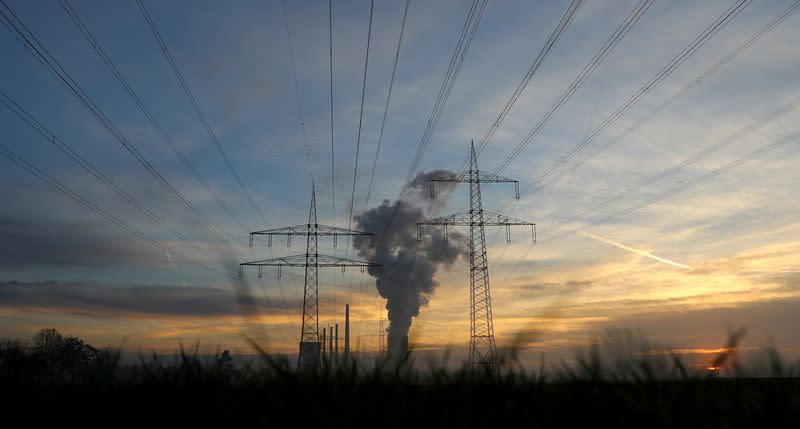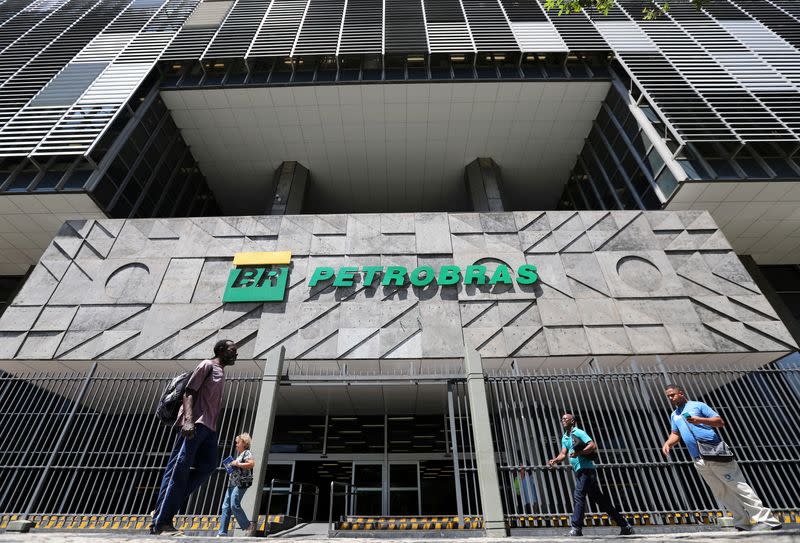Factbox-Government measures to ease inflation pain
(Reuters) - Pandemic-related disruption to global supply chains and the knock-on effects of Russia's war in Ukraine have combined to drive up prices of energy, commodities and basic necessities.
Below is a list of some of the actions taken by governments aimed at offering relief to hard-hit consumers and companies:
AMERICAS:
* Brazil's oil giant Petrobras has cut fuel prices multiple times this year. In July, the government slashed fuel taxes and raised social welfare payments.
* Mexico's president will meet with food producers and distributors to potentially prevent price increases for 24 basic items. In August, officials said inflation subsidies had already cost some 575 billion pesos ($28.91 billion) this year.
* Canada on Sept. 13 announced a C$4.5 billion ($3.34 billion) package with a tax credit for families of low and modest incomes, and a one-time top-up to a benefit which helps low earners pay rent.
* The United States offered debt relief to former students, while the $430 billion "Inflation Reduction Act" unveiled in August aims to cut prescription drug prices and introduce tax credits to encourage energy efficiency.
* Chile in July announced a $1.2 billion aid plan including labour subsidies and one-time payments for those most affected.
EUROPE:
* The European Union plans to raise more than 140 billion euros ($138 billion) for inflation relief by skimming off revenues from low-cost electricity generators and making fossil fuel firms share windfall profits.
* Britain will cap wholesale electricity and gas costs for businesses at less than half the market rate. A plan announced in September to help households is likely to cost north of 100 billion pounds ($113 billion).
* Germany agreed to nationalise gas importer Uniper. In early September, the government announced a 65-billion-euro-package for consumers and businesses.
* France is expected to launch its takeover of power group EDF by the end of September, sources said. It will also cap household power and gas price increases at 15% next year, and in August passed a 20-billion-euro relief bill.
* Greece will pay out a further 1.1 billion euros in power bill subsidies in October to households and businesses.
* Hungary extended price caps on fuels and basic foodstuff until the end of the year.
* Norway agreed to spend 3 billion Norwegian crowns ($290 million) to help businesses. It is also helping households with electricity bills.
* Italy on Sept. 16 approved a package worth some 14 billion euros.
* Poland will spend over 30 billion zlotys ($6.2 billion) to freeze power prices and support companies. It will also raise the minimum wage twice next year.
* The Czech Republic will cap electricity and gas prices next year.
* Portugal cut VAT on electricity and provided one-off payments for workers, families, and pensioners.
* Spain will slash VAT on gas to 5% from 21%, starting from October.
* Croatia will cap electricity prices from Oct. 1 until March.
* Finland and Sweden will offer liquidity guarantees to power companies.
* Denmark in August capped annual rent increases at 4% for the next two years, adding to previous measures.
ASIA:
* Thailand on Sept. 13 extended a diesel tax cut and energy subsidies and raised the minimum wage.
* India on Sept. 8 restricted exports of rice, looking to boost supply and calm local prices. It has also set up a panel to review pricing of locally produced gas.
* Japan will present another economic package in October, adding to a record minimum wage hike and a $103 billion relief bill unveiled in April.
* Indonesia's government on Sept.14 ordered regional heads to keep food inflation below 5%. In August, the government agreed to reallocate 24.17 trillion rupiah ($1.61 billion) from fuel subsidies to welfare spending.
* Malaysia expects to spend a record 77.3 billion ringgit ($16.93 billion) in aid this year.
AFRICA AND MIDDLE EAST:
* Tunisia's government on Sept. 15 signed a deal with a major labour union to raise public sector pay and the minimum wage.
* Egypt on Aug. 30 announced a package to clear a backlog of goods in ports and help reduce commodity prices.
* South Africa in July announced a cut in the pump prices of fuel.
* Botswana in July cut VAT by 2% for six months.
* Turkey in July increased its minimum wage by about 30%, adding to the 50% rise seen at the end of last year.
* Saudi Arabia and the United Arab Emirates in July raised social welfare spending.
($1 = 19.8916 Mexican pesos)
($1 = 1.3479 Canadian dollars)
($1 = 1.0140 euros)
($1 = 0.8846 pounds)
($1 = 10.3426 Norwegian crowns)
($1 = 4.8296 zlotys)
($1 = 80.8750 Indian rupees)
($1 = 15,015.0000 rupiah)
($1 = 4.5650 ringgit)

 Yahoo Finance
Yahoo Finance 

